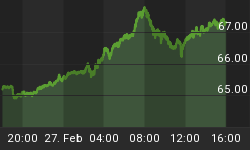Once again, key leading indicators suggest that the Euro-zone economy will fare better than expected next year - which in turn suggests that the European Central Bank's (ECB's) widely-expected 25bp rate hike on December 7 will not be its last.
The Ifo business survey revealed an uptick in optimism about German economic conditions. Not only did the main index improve - rising to 105.3 from 104.9 last month - but so did the forward-looking business expectations index, edging upward from 98.9 in September to 99.2. The current conditions index stabilized at 111.8 (111.3 in September). The retailing component of the main index dropped to -7.4 (-3.7 in September) but the manufacturing component climbed again, to 20.2 (18.4 in September).

All told, it seems that German manufacturers are more sanguine about the hefty three percentage point increase in the VAT rate that kicks in on January 1st, which suggests that the economy will not slow as markedly as feared in 2007.
Yesterday, the Belgian National Bank's business confidence indicator dipped again, but overall remains firmly in positive territory. Thanks to Belgium's strong trade ties with its neighbors, the BNB's business confidence index is a reliable leading indicator - about six months out - for GDP growth in the Euro-zone as a whole. October's overall index eased to 3.8 from 4.5 in September as the manufacturing sub-component dropped to 2.4 (5.0 in September). Most of the manufacturing slowdown came from foreign orders - the trend in manufacturing export orders came in at a seasonally-adjusted 0 in October, compared with +9 in September, and -1 in August - indicating slower demand from the likes of Germany, the UK, and France next year. The retailing sub-component actually picked up, to 4.5 (4.2 in September). While the overall confidence index and its components once again retreated from June's historical highs, the fact that the headline and manufacturing results remain in positive territory for the ninth straight month bodes well for the Euro-zone outlook over the next six months.

Meanwhile, preliminary German inflation data from the western states, released today, suggest that the EU-harmonized index will start to edge upward this month, after last month's annual rate dropped to just 0.99%. As German inflation counts for nearly a third of the Euro-zone price index, this suggests that Euro-zone inflation also will head upward again this month. The preliminary pan-German inflation estimate for October is due for release at the end of today, while the Euro-zone flash estimate comes out October 31st.

While Governor Trichet and his fellow ECB policymakers still refuse to be drawn on expectations for the monetary stance next year, their comments - and the data - continue to support our view that monetary tightening will continue at least into the first quarter of 2007. The statement and comments accompanying the November 2 policy meeting may give additional pointers. Key data to watch over the next few days will be Euro-zone money supply data on the 27th; then various Euro-zone sentiment surveys, unemployment data, and flash October CPI, all on the 31st.















